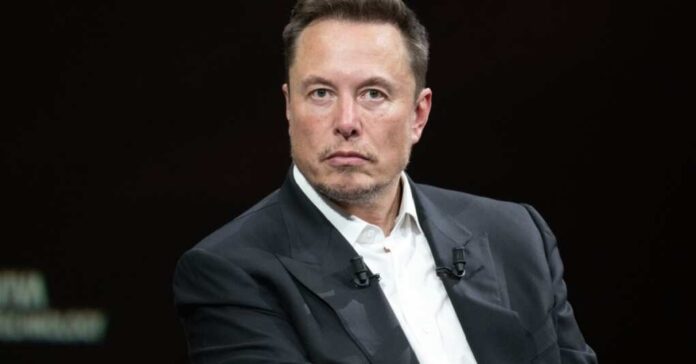
The House resoundingly passed a bipartisan bill mandating ByteDance, TikTok’s parent company, to divest the social media platform or risk a nationwide ban on all U.S. devices. The vote tally stood at 352-65, demonstrating strong bipartisan support for the measure.
Elon Musk felt compelled to intervene after Republicans In Name Only (RINOS) teamed up with Democrats on a chilling plan backed by Biden to target conservatives. Throughout history, society has often resorted to banning products and ideas perceived as threats. Yet, bans rarely address underlying issues, a point highlighted by Elon Musk’s recent criticism of alleged censorship.
The recent congressional vote on a potential ban on TikTok has caused concern in both technology and political circles. In recent years, TikTok has become a popular social media platform for Generation Z, but its data-sharing practices remain problematic.
Elon Musk recently joined the chorus of critics, expressing deep reservations about the proposed TikTok ban. He echoed concerns raised by Congressman Thomas Massie about the legislation’s broader implications.
This law is not just about TikTok, it is about censorship and government control!
If it were just about TikTok, it would only cite “foreign control” as the issue, but it does not. https://t.co/3hpePCE1nS
— Elon Musk (@elonmusk) March 12, 2024
Massie’s analysis of the bill highlighted provisions that would grant the President expansive censorship powers, alarming many conservatives. One point mentioned is that the bill will give the President the power to ban websites and Apps. Then there is the fact that the person breaking the new law is deemed to be the internet hosting service or the App Store, not the “foreign adversary.”
If you think this isn’t a Trojan horse and will only apply to TikTok and foreign-adversary social media companies, then contemplate why someone thought it was important to get a very specific exclusion for their internet based business written into the bill: pic.twitter.com/LnHsmEgtt9
— Thomas Massie (@RepThomasMassie) March 12, 2024
At the 2023 DealBook Summit, Musk discussed TikTok. According to Musk, he stopped using the popular and controversial social media app after he felt it probed his mind with artificial intelligence.
Musk said he had observed that teenagers and individuals in their twenties appear heavily immersed in the platform, describing their engagement as nearly religious. Musk also mentioned that some individuals spend up to two hours daily on TikTok.
The billionaire CEO believes TikTok is not being used by the Chinese government to manipulate American minds. Musk explained that the TikTok algorithm operates solely through air power. Its primary goal is to pinpoint the most viral content available, aiming to captivate users and keep them glued to their screens. Musk’s meaning is clear: TikTok’s algorithm does not support it.
According to the latest legislation, if based, TikTok’s parent company will be required to sell its U.S. assets within six months after the bill is signed into law. If they fail to do so, they will face an outright ban in the United States. The proposed measure has garnered support from those who are worried about the Chinese government obtaining the data of approximately 150 million American citizens who use the video app. Additionally, there are concerns that the Chinese government could manipulate the app’s algorithms to influence public discourse in the United States.
Critics of the bill state that security threats from the Chinese government could be tackled more effectively with “a narrowly tailored law” that forbids the transfer of Americans’ private data to China and other foreign entities. Those laws could also cover data brokers who sell data to Chinese companies. Many critics believe the bill is not addressing the root issue and that banning TikTok is not the answer.
Some critics, including Marjorie Taylor Green, Nancy Mace, and Donald Trump, believe that the proposed bill is a way to censor American citizens. They fear that the bill could infringe upon the First Amendment rights of Americans and hinder their ability to express themselves freely. Critics are also sounding the alarm about the potential impact on small business owners who rely on TikTok as a platform for marketing and sales.
The bill’s fate in the Senate is unclear, but congressional approval of a measure that could ban TikTok reveals the federal government’s intention to exert more control over social media. TikTok is one of the most popular apps among young people, and banning it may completely change how they consume media.















